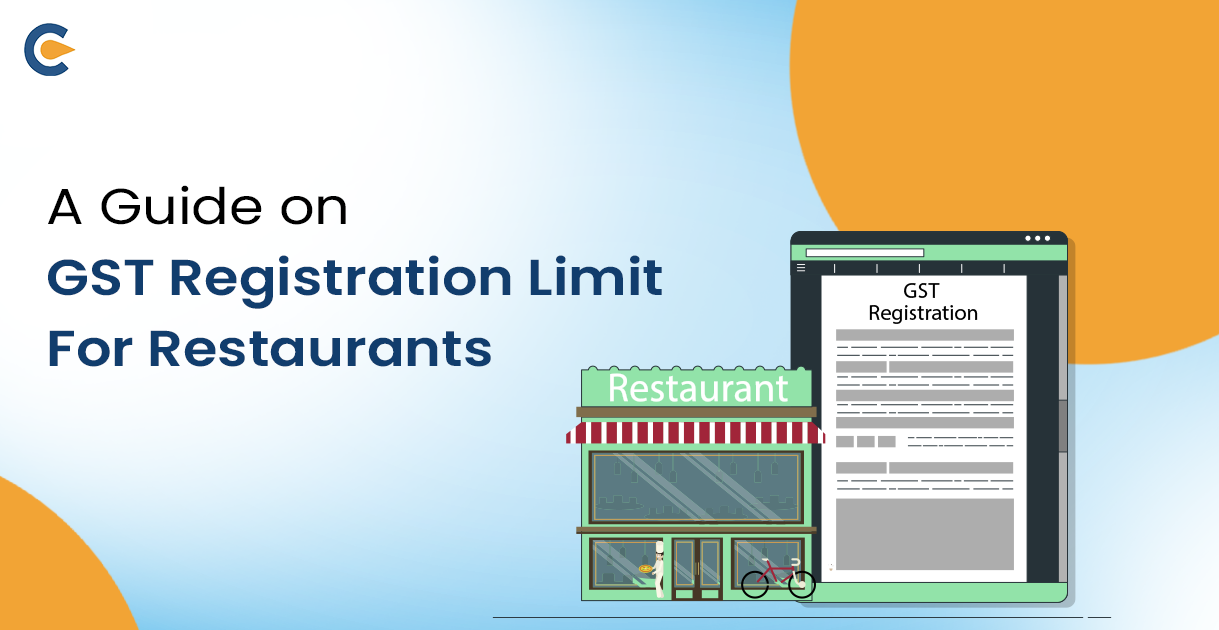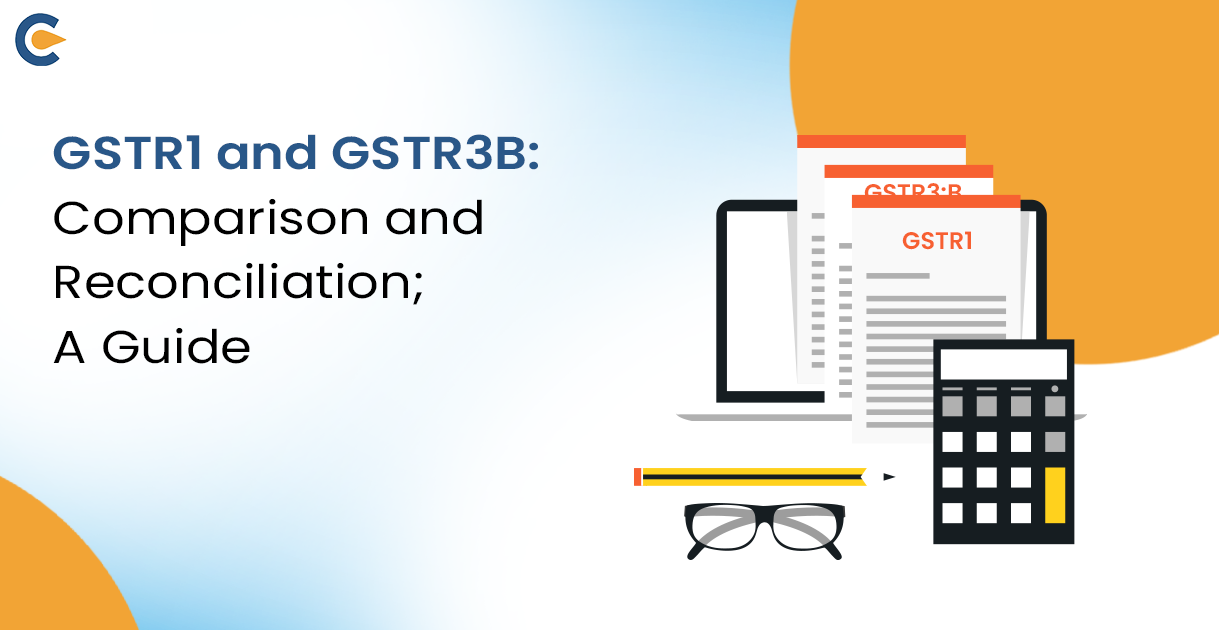As per the GST Registration limit for Restaurants, restaurants with a yearly revenue over Rs. 20 lakhs must register for GST. If the total annual revenue of a restaurant in a state under a special category exceeds Rs. 10 lakhs, the restaurant is required to register for GST. Restaurants with less than this turnover can opt out of GST registration threshold limit, preventing them from collecting GST from customers and patrons. The Goods and Services Act of 2017 established the initial GST Registration limit for Restaurants of Rs. 20 lakhs for goods and services. It became clear that the local businesses were being harmed by this excessive surcharge. As a result, the Government raised the bar for those in the product trade in an attempt to assist these smaller businesses. Currently, 40 lakhs is the barrier for product-dealing businesses. In 2019, the threshold was raised from Rs. 20 lakhs to Rs. 40 lakhs.
Restaurants under GST Composition Scheme
When it comes to GST composition schemes, the GST registration limit for restaurants is different from the regular GST registration limit for restaurants. Restaurants under GST Composition Scheme have the following characteristics-
- The composition plan is eligible forrestaurants that have a total yearly turnover in the previous financial year of up to ₹1.5 crores (₹75 lakhs for special category states).
- Restaurants that offer services alone may choose to use the composition method.
- A restaurant is not allowed to use the composition system if it serves alcohol.
- Restaurants operating under the composition scheme are not eligible to get input tax credits for taxes paid on their inputs. The tax should be paid based on the restaurant’s yearly turnover.
- Depending on the type of restaurant (air-conditioned or not), the precise tax rate may vary.
- Under the composition plan, restaurant businessesare required to file quarterly returns instead of monthly ones.
Restaurants that sell alcohol and liquor are not permitted to choose registration under the GST Composite Scheme. In a similar fashion, eateries that produce pan masala, ice cream, edible ice items, tobacco, and tobacco products are not permitted to register as composite taxpayers.
Tax slabs for Restaurants under GST composition scheme
The various tax rates applicable to restaurant businesses are stated as follows –
| Category of Restaurants | GST Rates |
| Standalone Restaurants | 5% without Input Tax Credit |
| Restaurants in Hotels (where room rent is Rs. 7,500) | 5% without Input Tax Credit |
| Ordinary outdoor restaurants within hotels (with catering service) | 5% without Input Tax Credit |
| Restaurants in Hotels (where room rent is Rs. Equal to or more than 7,500) | 18% of Input Tax Credit |
| Ordinary outdoor restaurants within hotels (with catering service) | 18% of Input Tax Credit |
Process of GST Registration for Restaurants
In order to make a GST Registration for a Restaurant and know the GST Registration limit for Restaurants, the business owner must follow the below-mentioned process of GST registration for restaurants-
Step 1: The first step is to obtain the GST Identification Number (GSTIN). GSTIN number requires completing an online application on the GST portal in form GST REG-01 as the first step in the registration procedure. Each registered taxpayer is given a 15-digit unique identification number called the GSTIN.
Step 2: Following the application for GSTIN Number, the next step is to provide the information required about your restaurant, including the name of the organization, the location’s address, the total built-up area, the kind of business entity it is, and the number of employees working.
Step 3: The business owner must provide supporting documentation. In order to finish the registration procedure, the owner of the restaurant must provide supporting documentation, such as a PAN card, an Aadhaar card, bank account information, and evidence of the business location, like a lease or an electricity bill.
Step 4: The GST officials check the information and paperwork that the restaurant owner has submitted after applying. The application is approved, and a GST registration certificate is issued by the GST officer upon completion of the verification process.
Conclusion
In India, if a restaurant’s yearly revenue is more than Rs. 20 lakhs, they have to register for GST. Depending on the turnover, they must file monthly, quarterly, or annual returns after registering. Additionally, restaurants have to keep accurate records of every transaction, including receipts, bills, and invoices for the GST Registration limit for Restaurants. After the yearly return is filed, the records must be kept for a minimum of six years.
GST Registration limit for Restaurants is discussed here. The GST rate is 18% for restaurants that offer alcohol and have air conditioning or heating. GST is 5% for eateries without air conditioning. Restaurants are free from GST if they just offer snacks and non-alcoholic drinks. Furthermore, eateries that generate less than Rs. 20 lakhs in revenue annually are not subject to GST. For all taxable supplies, restaurants must provide tax invoices. Details, including the recipient’s name and address, the supplier’s name, address, and GSTIN, the amount and description of the goods or services provided, their taxable value, and the applicable GST rate, must all be included in the tax invoice.
Frequently Asked Questions (FAQs)
Is Separate GST Registration necessary for every outlet if a restaurant operates in multiple states?
Yes, State-specific GST registration is indeed required. As a result, you must obtain separate GST registrations for each state in which your restaurant operates if it has locations in multiple states.
Can a restaurant voluntarily opt for GST registration even if its turnover is below the specified limit of Rs. 20 lakhs?
Yes, It is still possible for a restaurant to choose to voluntarily register for GST even if its annual revenue is less than the threshold. One strategic option that enables firms to take advantage of GST benefits is voluntary registration.
Are GST Registration limit for Restaurants different for small and large restaurants?
Yes, small and large restaurants have different GST Registration limit for Restaurants. The GST framework's requirement for registration is affected by variations in the turnover thresholds.
Is GST Applicable to all types of restaurants?
Yes, GST is applicable to all types of restaurants, including takeaway restaurants and restaurants within hotels, ranging from 5% to 18% GST.
Does the restaurant or food business file any GST returns?
Yes, restaurants must file their GST returns as well. For restaurants, there are primarily three kinds of GST returns.
1. Sales Returns are due on the tenth of each month.
2. Purchase returns, which must be submitted by the 15thof each month.
3. The combined sales and purchase returns must be submitted on the 20thof each month.How can restaurants claim Input Tax Credit?
Hotels with restaurants that charge guests Rs 7,500 or more per night are eligible for input credit subject to certain restrictions. Additionally, the amount spent on purchased raw materials would qualify the owner of a restaurant for an input tax credit. It is only refundable upon computation of the final indirect tax liability on consumer-received items.
What is the GST registration threshold limit for restaurants?
The Basic Exemption barrier under the Goods and Services Tax (GST) for restaurant services is fixed at Rs. 20 lakh (or Rs. 10 lakh for restaurants/hotels located in any Northern state). If you would like to voluntarily register, you can, provided you follow the specified procedural guidelines.
Is GST compulsory in restaurants?
Yes, GST Registration is necessary for restaurants and eating business.
How do I know if my restaurant is GST-exempt?
The Basic Exemption barrier under the Goods and Services Tax (GST) for restaurant services is fixed at Rs. 20 lakh(or Rs. 10 lakh for restaurants/hotels located in any Northern state).If the annual turnover of the restaurant is below these thresholds, it is liable for exemption from GST. Otherwise, it has to pay GST.
Is GST applicable for small restaurants?
Small restaurants can choose the composition plan under GST and pay a set tax rate that is less than the standard GST rate if they have an annual revenue of up to Rs. 1.5 crores. Subject to specific requirements, restaurants may also be eligible for an Input Tax Credit (ITC) on the GST paid on their inputs, which includes rent, utilities, raw materials, and salaries.
Can a restaurant charge GST without a GST number?
As a customer at a restaurant or eatery, you are not required to pay the amount the restaurant is billing you for GST if you do not have a valid GST registration number.
Read Our Article: Guide On The Types Of GST Registration










